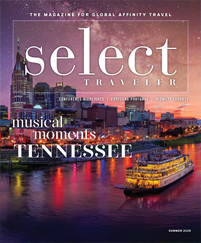Many travel leaders face a quandary when it comes to the matter of faith-based travel: Although religious attractions both in the United States and abroad often prove incredibly popular with visitors, the current political and social climate might make leaders uneasy about including faith-based activities in their travel programs.
Fortunately, faith-based trips don’t have to be an all-or-nothing proposition, and there are numerous ways for travel planners to introduce religious attractions and activities into their trips without overwhelming travelers. We spoke with a representative of the Creation Museum and Ark Encounter, as well as the owner of faith-based tour operator Select International Tours, to gather five tips for helping you integrate faith-based travel into your affinity program.
1) Know your audience.
To determine whether faith-based activities would be a fit for your travel program at all, as well as to pick the right destinations and attractions, understanding your audience is crucial. Travel programs based in small communities with strong faith cultures will likely attract customers who would enjoy faith-based activities on a trip. But organizations with government ties might encounter some push-back for promoting religious travel.
If you think your travelers would be open to faith-based activities, the next step is to determine what destinations will interest them most. Though Israel is perennially popular, many faith-based destinations are chosen according to a group’s religious tradition.
“Catholics will go on a Catholic pilgrimage to places like Italy, Fatima and Lourdes, and Lutherans will want to go on a Lutheran trip, maybe to Germany to see sites of the Reformation,” said Edita Krunic, owner of Select International Tours.
If your group isn’t up for taking an overseas trip, there are popular faith-based attractions in places such as northern Kentucky; Branson, Missouri; and Eureka Springs, Arkansas, that might make good alternatives.
2) Appreciate the attraction appeal.
Don’t assume that faith-based attractions and activities appeal only to travelers who are active churchgoers. Many travelers who don’t consider themselves very religious are still interested in visiting faith-themed sites because of their history, their cultural importance or even just for the spectacle of it all.
“We get a lot of groups that are not faith based at all,” said Eddie Lutz, who represents the Creation Museum and the new Ark Encounter attraction, both in northern Kentucky. “A lot of traditional motorcoach groups see the opportunity, and their travelers want to do this, whether they are believers or not. The ark is so unique, and it’s something that everyone at least has an understanding of. Some people will come just because they want to see the architecture and how the thing is constructed.”
If a faith-based site is an attraction itself, it will likely have a lot to offer to a wide variety of travelers, not just those who consider themselves true believers.









